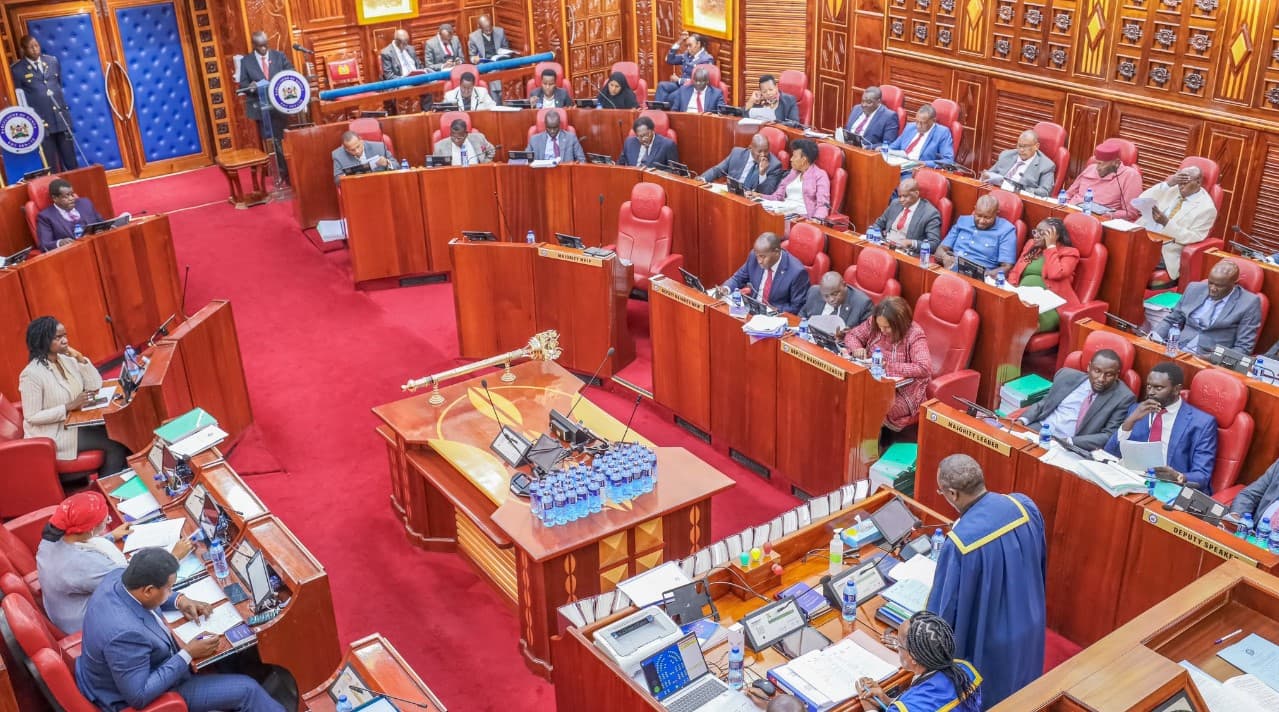We're loading the full news article for you. This includes the article content, images, author information, and related articles.
Kenyans are invited to a public hearing on Friday, October 25, 2025, to discuss a constitutional amendment bill seeking to extend the terms of elected officials from five to seven years. This proposal has sparked considerable public debate and opposition across the country.

The Kenyan Senate has officially gazetted Friday, October 25, 2025, as the date for a crucial public hearing on a proposed constitutional amendment that aims to extend the term limits for elected officials from the current five years to seven years. The public hearing will take place at 9:00 AM EAT at the Kenyatta International Convention Centre (KICC) in Nairobi. This development follows a gazette notice signed by Senate Clerk Jeremiah Nyegenye on Friday, October 11, 2025.
The proposed changes are contained within the Constitution of Kenya (Amendment) (No. 2) Bill, 2024 (Senate Bills No. 46 of 2024). This Bill was first read in the Senate on Thursday, September 26, 2024, before being referred to the Standing Committee on Justice, Legal Affairs and Human Rights for further review and public engagement. Under Senate Standing Order 145(5), the committee is mandated to facilitate public participation, gather views, and collect recommendations from Kenyans before submitting its final report to the Senate.
The debate over term limits for elected officials is not new in Kenya. Presidential term limits were initially introduced in 1992, coinciding with the reintroduction of multiparty politics. The current Constitution of Kenya, enacted in 2010, reaffirmed the two-term limit for presidents, with each term lasting five years. This five-year term also applies to Members of Parliament (MPs), Senators, Members of County Assemblies (MCAs), and Governors.
Previous attempts to alter presidential term limits have been met with public outrage. For instance, a proposal in 2022 to scrap the term limit entirely and replace it with an age limit of 75 years was rejected due to significant public opposition. Afrobarometer surveys consistently show that a large majority of Kenyans, approximately 86%, support a two-term limit for the president, a position that has held strong for over a decade.
The Constitution of Kenya (Amendment) (No. 2) Bill, 2024, sponsored by Nandi Senator Samson Cherargei, seeks to amend several articles of the Constitution. Specifically, it proposes to amend Article 136 to extend the President's term from five to seven years. Additionally, it aims to amend Articles 101, 177, and 180 to extend the terms of MPs, Senators, MCAs, and Governors to seven years.
Beyond term limits, the Bill also seeks to enhance the powers of the Senate, granting it the exclusive mandate to vet and approve various state officers, including Cabinet Secretaries, the Attorney-General, the Director of Public Prosecutions, and the Chief Justice. It further proposes that the Senate take over the responsibility of filing petitions for the removal of members of constitutional commissions or holders of independent offices, a role currently held by the National Assembly.
The public participation process for this Bill has already seen an overwhelming response. By Friday, October 25, 2024, the Senate had received over 200,000 written memoranda from Kenyans, many expressing strong opposition to the proposed term limit extension. The sheer volume of submissions even caused temporary issues with the Senate's email system.
Civil society groups and various political figures have voiced concerns, with some viewing the Bill as an attempt by the political class to entrench themselves in power. However, the Senate has also clarified that a separate Constitution of Kenya (Amendment) Bill, 2025, which focuses on strengthening devolution and enhancing the Senate's oversight role, does not seek to extend term limits or create new executive positions.
Extending term limits could have significant implications for Kenya's democratic governance. Critics argue that longer terms may weaken accountability by reducing the frequency with which leaders face the electorate. It could also potentially lead to complacency among elected officials and diminish the public's ability to influence governance through regular elections.
The public hearing on Friday, October 25, 2025, is a critical step in the legislative process. Following this, the Standing Committee on Justice, Legal Affairs and Human Rights will compile its report, incorporating public views and recommendations, before presenting it to the full Senate. The Bill would then proceed to its Second Reading.
The outcome of the public hearing and the subsequent committee report will be closely watched. The level of public engagement and the Senate's response to the widespread opposition will be key indicators of the Bill's future. Any constitutional amendment of this nature would ultimately require a two-thirds majority in both the National Assembly and the Senate, and potentially a national referendum, as stipulated by Article 255 of the Constitution.
Keep the conversation in one place—threads here stay linked to the story and in the forums.
Sign in to start a discussion
Start a conversation about this story and keep it linked here.
Other hot threads
E-sports and Gaming Community in Kenya
Active 9 months ago
The Role of Technology in Modern Agriculture (AgriTech)
Active 9 months ago
Popular Recreational Activities Across Counties
Active 9 months ago
Investing in Youth Sports Development Programs
Active 9 months ago